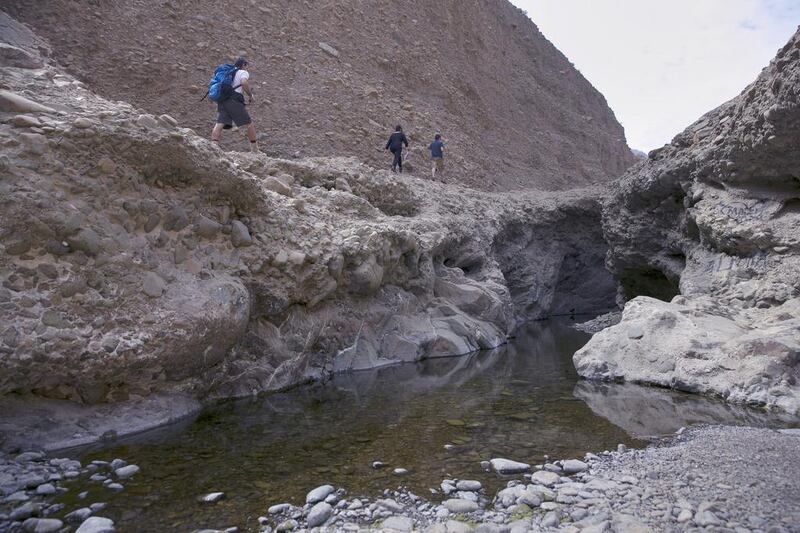Environmental work by volunteers at Fujairah’s Wadi Wurayah National Park has yielded important results for scientists looking to preserve the area’s delicate ecosystem.
Between September last year and April, more than 270 people from 12 countries volunteered for the first round of the Water Research and Learning Programme in the protected area, gathering data on the quality of the fresh water in the pools, and providing information enabling scientists to map the well-being of the ecosystem over time.
“They have achieved tremendous results,” said Dr Olivier Combreau, head of the park and an expert with the Emirates Wildlife Society – World Wide Fund for Nature, which is a partner in the initiative with the international environmental charity, Earthwatch, HSBC Bank Middle East and the Government of Fujairah.
Wadi Wurayah was put out of bounds to the public in December last year when the Crown Prince of Fujairah, Sheikh Mohammed bin Hamad Al Sharqi, officially closed the gates to the wadi to allow the popular tourist site to recover from years of human intervention.
The park is set to reopen after the development of infrastructure to accommodate visitors, while also preventing disturbance to the rare animals and plants that live there.
Every week for the duration of the programme a group of volunteers from HSBC would spend five days at the park. They were trained to perform water tests, count dragonflies and damselflies, capture and measure toads and check camera traps. In all, more than 275 freshwater samples were collected, more than 400 dragonflies tagged, and about 300 toads measured.
The data was a valuable contribution to scientists at the park, said Dr Combreau.
“Without the volunteers, it would have taken us long hours of work to obtain all this data,” he said.
The volunteers were trained how to carry out simple tests for nitrate and phosphate concentrations – which can promote growth of water algae – and for the turbidity, or murkiness, of the water. They also tested for levels of e.coli and other coliform bacteria in the pools near the main waterfall of the wadi.
Scientists had noted elevated levels of bacteria that could pose a threat to the health of visitors, but more recent tests showed that the levels of bacteria had dropped.
Tagging dragonflies involved catching them in nets, then pinning them down on to a magnetic board without harming them. A number was then tagged on to their wings. The work was expected to produce data about the dragonflies’ range, lifespan, population and breeding cycles.
Dragonflies are highly sensitive to water quality and their abundance or otherwise serves as an overall indicator of an ecosystem’s health. This was also the reason why toads and other insects were studied.
Among those helping out was Hazel Jane D’sa, 16, who attended with her mother, an HSBC employee. She said she enjoyed learning about water scarcity issues.
“I have recommended the programme to friends and family already, she said.
Sabrin Rahman, senior manager of corporate sustainability at HSBC Middle East, said the bank had supported the Wadi Wurayah project for several years with staff volunteering more than 3,600 hours in clean-ups and other activities.
“HSBC helped to launch the Middle East’s first water research centre in the UAE to act as a hub for environmental research and learning activities critical to water resource and ecosystem management,” she said.
vtodorova@thenational.ae





